What happens when the standard contract, also known as a boilerplate contract, doesn’t quite capture all the necessary details? That’s where contract riders come in.
What is a Contract Rider?
The rider in a contract is a supplementary document attached to a main contract. It serves to add, modify, or clarify specific terms, conditions, or provisions that aren’t comprehensively covered in the original agreement.
Think of it as an add-on that customizes the contract to better suit the unique needs of a particular situation.
Contract Rider vs. Addendum
While contract riders and addendums both modify existing contracts, there’s a subtle difference between them. Riders are typically more integrated with the main contract, often referencing specific clauses for modification.
Addendums, on the other hand, can be standalone documents that provide entirely new information or address unforeseen circumstances that arise after the initial agreement is signed.
Why Use Contract Riders?
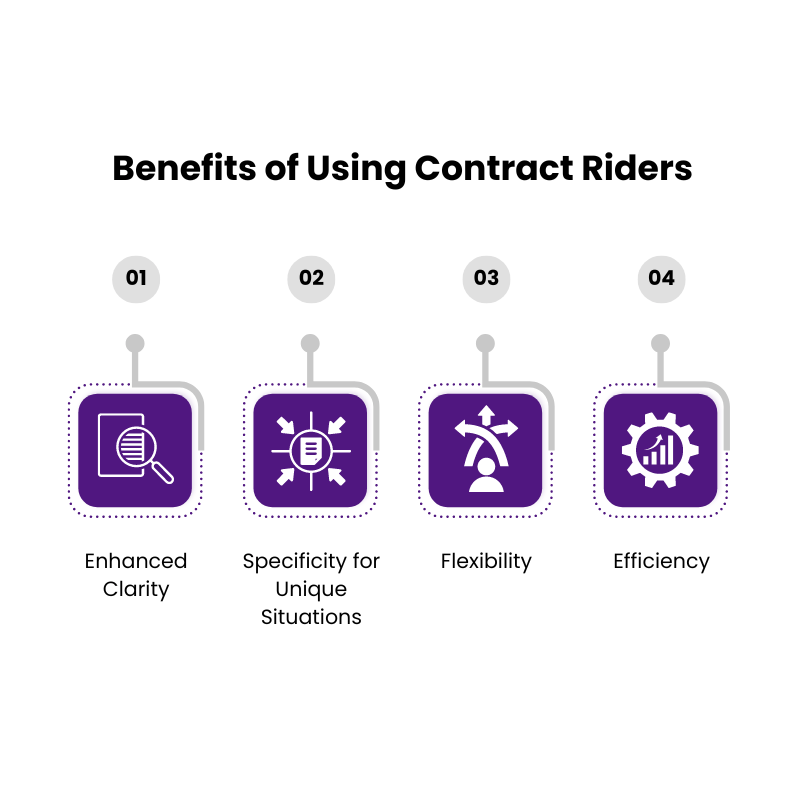
There are several compelling reasons to utilize contract riders:
- Enhanced Clarity: Contracts can be complex documents. Riders can be used to break down specific provisions or add definitions for key terms, avoiding potential confusion and future disagreements. This can be particularly useful for ensuring both parties are on the same page regarding important details in the contract.
- Specificity for Unique Situations: Standard contracts often cater to a broad range of scenarios. Riders allow parties to address specific needs or concerns that aren’t covered in the boilerplate language. For example, a real estate contract might have a rider specifying what happens if a home inspection uncovers unexpected issues.
- Flexibility: The ability to tailor a contract with a rider provides greater flexibility, ensuring each party’s unique requirements are addressed without having to completely overhaul the entire agreement. This can save time and resources during the negotiation process.
- Efficiency: Riders are a more efficient way to address specific details compared to drafting an entirely new contract from scratch. This saves time and resources for all parties involved.
Common Uses of Contract Riders
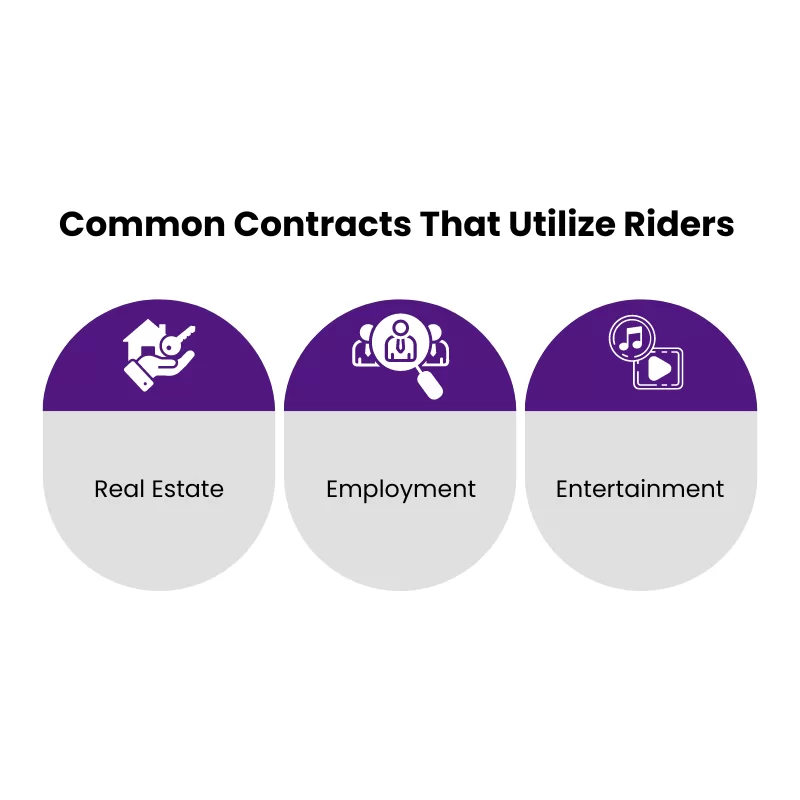
Contract riders find application in various contexts. Here are some of the most common:
- Real Estate: Real estate contracts often employ riders to address specific property details, like home inspection contingencies, closing deadlines, or the inclusion/exclusion of certain appliances.
- Employment: Employment contracts may utilize riders to clarify confidentiality agreements, non-compete clauses, or intellectual property ownership rights.
- Entertainment: The world of entertainment heavily relies on riders. Musicians might have riders outlining specific stage requirements, catering preferences, or security details.
Example of a Rider to a Contract
For instance, a rider might be used in a musician’s performance contract.
The standard contract likely covers the basics like date and set time, but a rider can address the musician’s specific needs. This might include details about the backline equipment provided by the festival, sound engineer qualifications, or catering options backstage.
The specific details of a rider will vary depending on unique needs and the type of contract that’s dealt with.
Crafting Effective Contract Riders
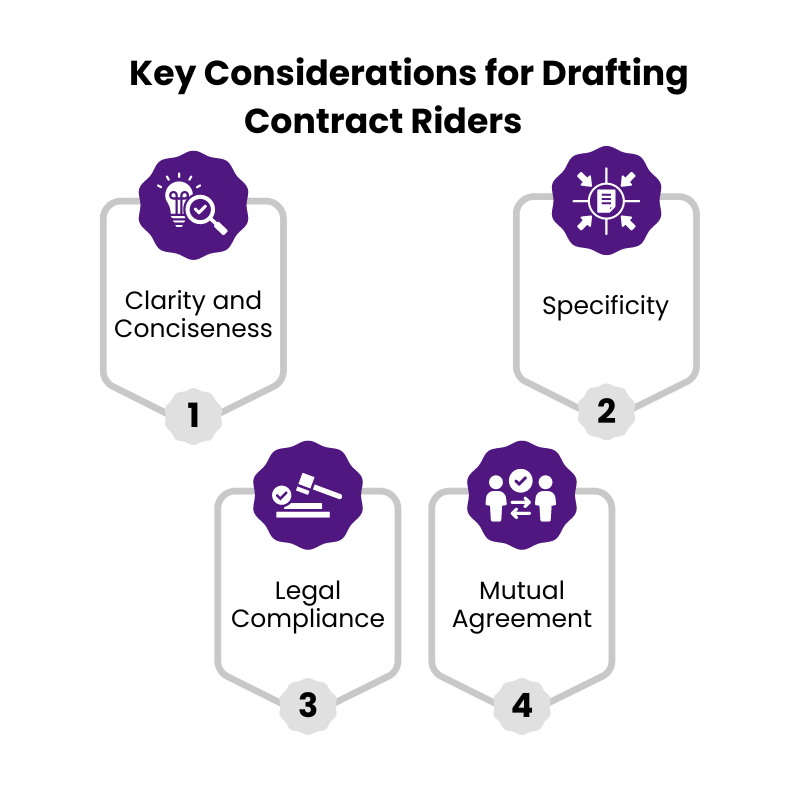
While contract riders offer a valuable tool for customizing agreements, it’s crucial to ensure they are drafted effectively. Here are some key considerations:
- Clarity and Conciseness: The language used in the rider should be clear, concise, and unambiguous. Avoid legalese and ensure all parties involved can easily understand the terms.
- Specificity: Be specific about the details being addressed in the rider. Leave no room for misinterpretation and ensure all modifications or additions are well-defined.
- Legal Compliance: It’s essential to ensure the rider complies with all applicable laws and regulations. Consulting with a legal professional during the drafting process is highly recommended.
- Mutual Agreement: Both parties involved in the contract must agree to the terms outlined in the rider. The rider should be signed and attached to the main contract for legal enforceability.
Different Types of Contract Riders
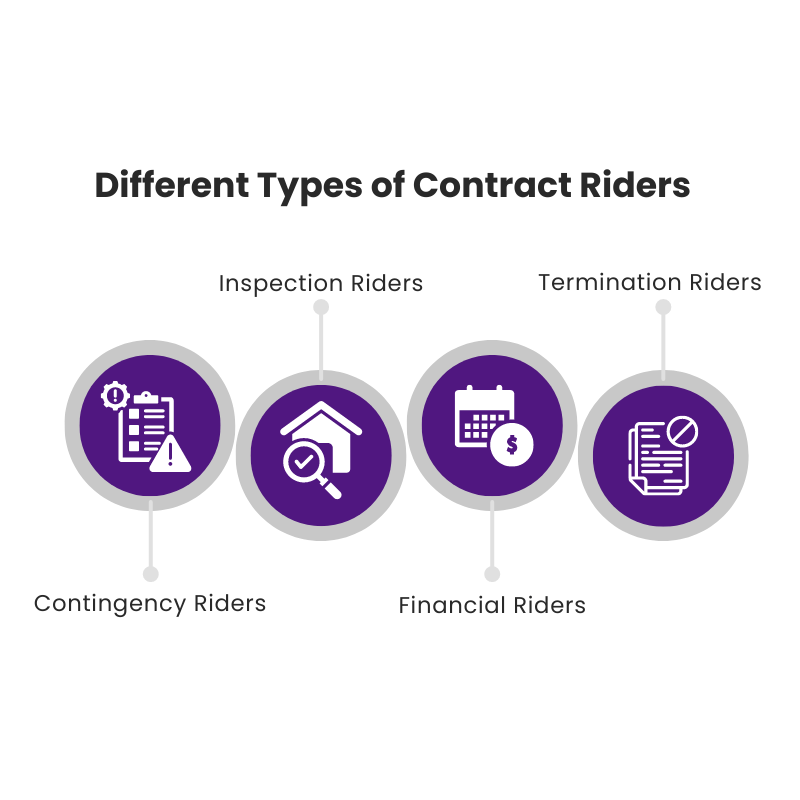
While the core function remains the same, contract riders can be categorized based on their purpose:
- Contingency Riders: These riders outline specific conditions that must be met before the contract becomes binding. For example, a real estate purchase agreement might have a financing contingency rider, where the sale is contingent on the buyer securing a mortgage.
- Inspection Riders: Often used in real estate contracts, inspection riders specify the process for property inspections and how any identified issues will be addressed.
- Financial Riders: These riders deal with financial aspects of a contract, such as payment schedules, interest rates, or late fees.
- Termination Riders: Termination riders outline the specific circumstances or events under which either party can terminate the contract. This can be crucial in service contracts or employment agreements.
Benefits of Using Contract Riders for Businesses
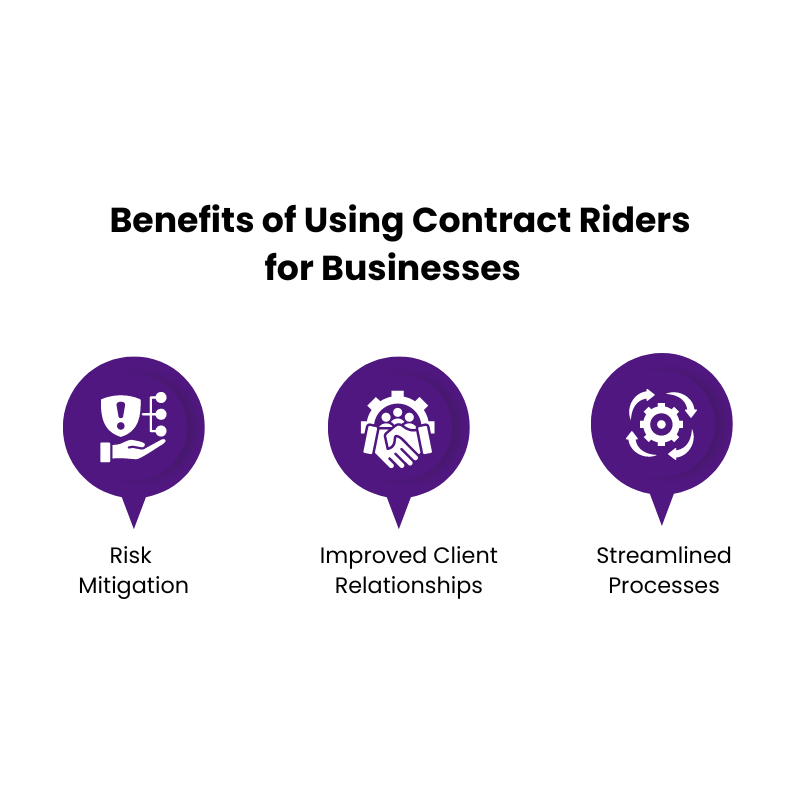
Contract riders offer several advantages for businesses:
- Risk Mitigation: By clearly outlining specific requirements and expectations, riders can help minimize the risk of misunderstandings and potential disputes later.
- Improved Client Relationships: Riders demonstrate a willingness to adapt the contract to a client’s specific needs, fostering trust and stronger client relationships.
- Streamlined Processes: Having standardized rider templates for common situations can save businesses time and resources during the contract negotiation
Challenges of Using Contract Riders
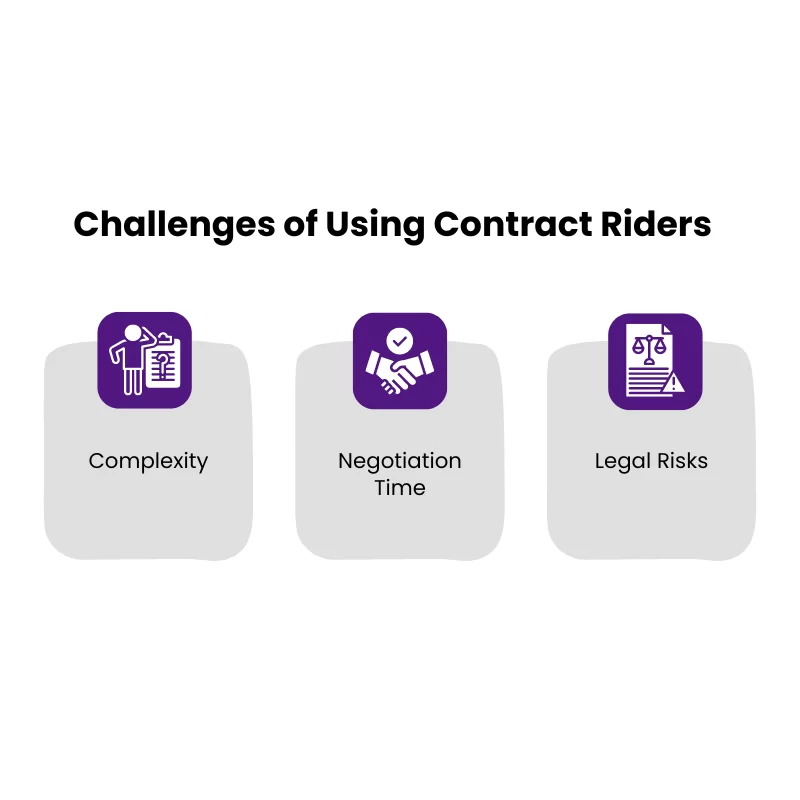
While beneficial, there are also potential challenges associated with contract riders:
- Complexity: An overabundance of riders attached to a contract can make it cumbersome and difficult to understand. Strive for clarity and avoid cluttering the agreement with unnecessary riders.
- Negotiation Time: Negotiating the terms of a rider can add time to the overall contract finalization process.
- Legal Risks: Poorly drafted riders that are ambiguous or contradict the main contract can lead to legal issues. Consulting with a lawyer or a legal services company is essential to ensure the rider is enforceable.
Best Practices for Negotiating Contract Riders
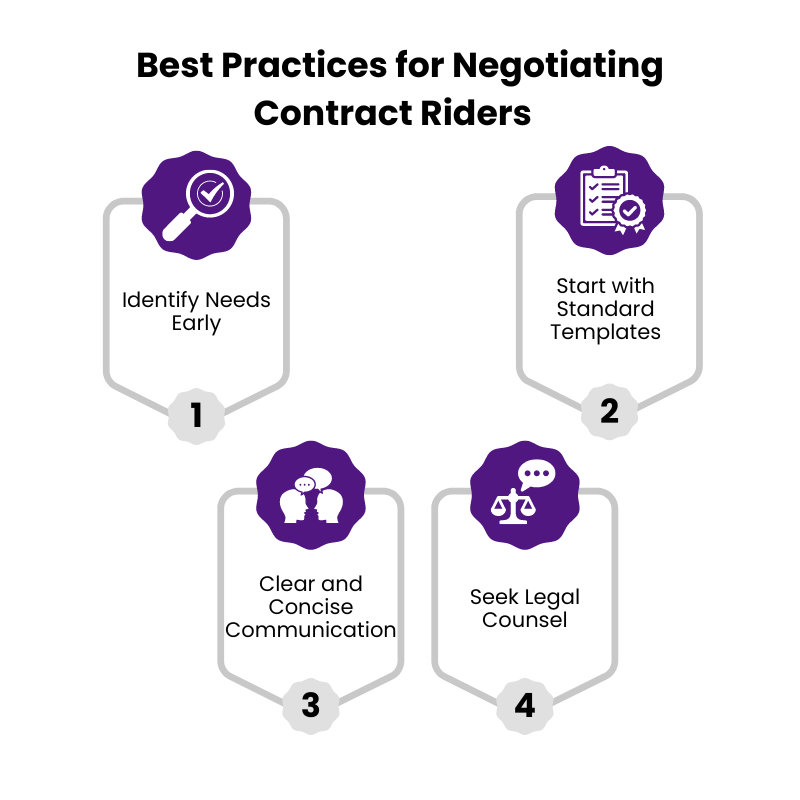
When dealing with contract riders, here are some best practices to follow:
- Identify Needs Early: Determine the specific needs your company has for the agreement and identify any areas where the standard contract might require modification.
- Start with Standard Templates: Many industries have developed standard rider templates for common situations. Utilize these as a starting point for your negotiations.
- Clear and Concise Communication: Clearly communicate your requirements for the rider and ensure all parties involved understand the proposed modifications.
- Seek Legal Counsel: Don’t hesitate to involve legal counsel during the drafting and negotiation process, especially for complex contracts or high-value deals.
Contract riders are a powerful tool for adding nuance and customization to standard agreements.
By understanding their purpose, applications, and best practices for drafting, you can leverage them to ensure your contracts are clear, comprehensive, and effectively address the specific needs of your situation.




